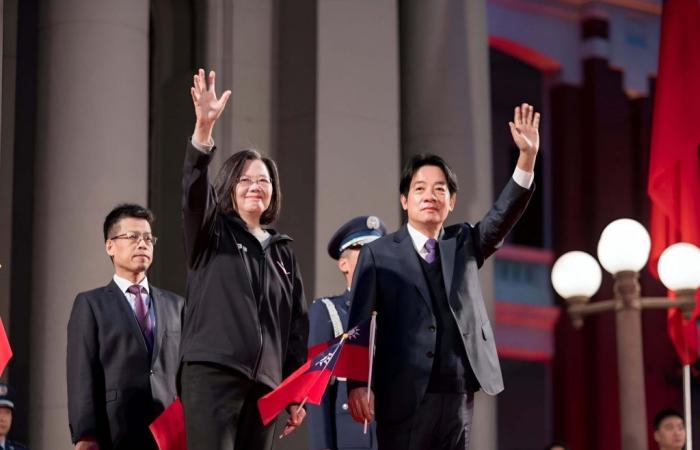On January 13, 2024, the presidential elections were held in the Republic of China (Taiwan), in which Lai Ching-te, of the Democratic Progressive Party (DPP), was the winner with 40% of the votes. The assumption of office took place a week later in a context of crisis, tension and division between the presidency and the main opposition formation, the Kuomintang (KMT), which was pressing to approve a controversial legislative package that has finally achieved go into effect.
The political situation is further aggravated considering that, despite Lai Ching-te’s victory, the DPP lost its majority in the Legislative Yuan by a single seat. This has led to the KMT, with the support of the small Taiwan People’s Party (TPP), taking control of Parliament.
The keys to the package
The controversial package includes a series of reforms that would significantly strengthen the powers of the legislature. Among the most notable measures is the obligation for the president to address Parliament at the beginning of each annual legislative session to report on the state of the nation, followed by a question period by parliamentarians.
In addition, the Legislative Yuan would gain the authority to form investigative committees that could require government agencies, the Armed Forces, private companies and individuals to hand over information and documents considered relevant, including those that are confidential. Failure to comply with these requirements could result in fines ranging between 10,000 (approximately 288 euros) and 100,000 (around 2,884 euros) Taiwanese dollars.
Government officials under investigation must answer questions directly, without being able to resort to cross-questions or refuse to answer; any evasion is considered contempt of the legislature. Penalties for such contempt include fines ranging from 20,000 (576 euros) to 200,000 (around 5,767 euros) Taiwanese dollars, and they could face up to a year in prison if found guilty of lying during the trial.
Additionally, the package contemplates the implementation of three special laws aimed at financing infrastructure projects in the opposition strongholds located on the east coast, with a total investment that exceeds 2 billion Taiwan dollars.
Tensions between the PPD and the KMT
Each of the stages of approval of the bills have been marked by protests from both the PPD and the population. The ruling party considers certain aspects of the projects to be unconstitutional, and accuses the KMT and the TPP of colluding with China to deteriorate democracy in Taiwan.
The KMT, for its part, argues that these reforms are necessary to establish a better balance of power between the Executive Yuan and the Legislative Yuan. They argue that the reforms would bring greater transparency and make the government more effectively accountable, especially since some officials have in the past avoided answering questions, thereby failing in their duty to explain their actions and policies.
The KMT also claims that a large number of the proposals were originally drafted by DPP representatives when they were in opposition, a claim the ruling party has denied. The Control Yuan, which has the power to conduct investigations, already exists, raising questions about whether the Legislative Yuan is overextending its power.
One of the PPD’s main concerns is that the new laws will become tools to harass the government, constantly subjecting it to investigations and possible legal proceedings. In addition, experts and civil society groups express fears that these reforms could result in leaks of confidential information. In response to these concerns, the opposition has assured that any MP who divulges confidential information will be held legally responsible for his or her actions.
Approval controversy
To pass a law in Taiwan, it needs to go through three readings. In this case, KMT lawmakers have been accused of skipping committee review to advance to the second reading. Also controversial was the fact that votes were counted by show of hands instead of using paper ballots. Both events were criticized by the Taiwan and Taipei Bar Associations, who described these actions as a violation of the fundamental principles of democratic constitutionalism.
Taiwan’s president does not have the ability to veto laws, but he can return the bill to parliament for another 15 days of discussion. This is what Lai Ching-te did on June 10, shortly after the proposal passed third reading. Thus, the Legislative Yuan ended up approving the new legislation on June 21, four days before the end of that period, with 62 votes in favor and 51 against. The Taiwanese leader promulgated the law on June 24.
The PDP previously stated that it would seek a constitutional interpretation on two aspects: the constitutionality of the amendments and the constitutionality of the legislative procedures used to handle the revisions before their enactment, specifically in relation to the lack of committee inspection and recount of votes by show of hands.
This, however, can only be done once the proposals become law, and it would be a process that would take a long time to resolve. After the promulgation, President Lai Ching-te again announced in a statement that he would send the reform to the Constitutional Court for interpretation, fearing that it “compromises the constitutional principle of separation of powers, as well as that of checks and balances.”
It has been a few months of tensions in Parliament and outside of it. Demonstrations with up to 100,000 participants were organized around the institutional building and in various cities in Taiwan, lasting several days. There have also been physical incidents within the chamber itself, such as the clash on May 17 between PPD legislators, who were trying to take control of the podium, against KMT parliamentarians, who were protecting it.
The incident left five people needing hospital treatment, and left images and videos that went viral on social media, including a DPP member fleeing with the reform in hand. This is not the first time that such episodes have occurred in the Legislative Yuan. In 2020, for example, KMT deputies threw a bucket of pig organs at former Premier Su Tseng-chang, and that same year, a water balloon fight broke out during a debate on pensions.
It thus marks the beginning of a legislature that appears complicated for Lai Ching-te given the alliance of the two opposition parties, as well as the constant drop in the approval rating among the population, with a drop of almost 10 points since he took office. . It is not only the political instability incited by the parties that is affecting their popularity, there is discontent among the population due to the increase in electricity rates and the inability to stop the increase in housing prices, to which is added the constant tension with its continental neighbor, China.






